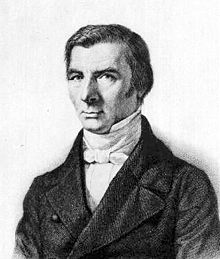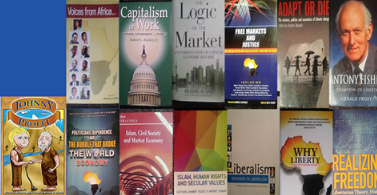By Matthew McCaffrey
Donald Trump’s plan to escalate the war in Afghanistan makes it necessary to once again stress the value of peace and the importance of rejecting US militarism and imperialism. Yet it also provides an opportunity to think about the foundations of a truly peaceful society, and to reaffirm a basic social truth: no institutions more effectively promote peace than the institutions of the market economy.
Cooperating not Expropriating
Peace begins at home, or rather, it begins wherever you and I decide it does: at any time and place we realize that the best way to improve our lives is to cooperate rather than to brutalize each other.
Trade allows us to benefit from our different values, while hurting no one.
As economists like Ludwig von Mises point out, this realization is actually the foundation of human social relations. It also explains why we establish social bonds through trade: we recognize, first, that we each possess resources and skills that are less valuable to us than others that we hope to acquire, and second, that other people value things in just the opposite way. Trade then allows us to benefit from our different values, while hurting no one. It is an act of peace, one reason why it’s no surprise that Mises refers to the moment after exchange as a “state of rest” – including an absence of conflict.
Voluntary exchange is thus a rebuke to violence and war-making: it reveals to each of us, in a personal way, that increasing our own welfare means cooperating, not expropriating.
Prices are a social recognition of this deeper fact. They tacitly acknowledge that many individuals have foregone violence and realized the benefits of cooperation and trade, so much so that they can establish between them an objective estimate of the social worth of the things we hold dear: a price.
Eventually, a vast network of individual exchanges creates the price system, a gigantic engine for improving the welfare of all members of society. This engine works 24 hours a day to overcome the greatest cause of conflict among human beings: scarcity.
The Struggle over Scarce Resources
Property, exchange, and the price system enable us to put aside our conflicts.
Scarcity presents seemingly intractable problems: how can we thrive in a world where human wants outstrip the resources available to satisfy them? How can we ensure that the goods and services we produce will get to the people who need them most?
Prices are the answer, and the price system works from moment to moment to appraise and allocate countless scarce resources over which we no longer have to fight.
Property, exchange, and the price system enable us to put aside our conflicts. In fact, when prices can’t be established because property rights are unclear – as in the tragedy of the commons – the result is a desperate conflict over scarce resources as each person tries to exploit a “free” good.
Similarly, price controls prohibit buyers and sellers from agreeing on a way to mutually benefit. Inevitably, someone leaves the market unsatisfied. In fact, price floors and ceilings cause conflict by eliminating exchange and replacing it with rationing. Without prices, producers and consumers arbitrarily discriminate, thereby creating special privileges for certain individuals and groups.
For example, landlords of rent-controlled apartments might choose tenants based on their racial characteristics rather than those who need housing the most. Similarly, faced with increasing minimum wage rates, fast food restaurants hire college students instead of workers from less wealthy or educated backgrounds who more urgently need a job. Inevitably, the non-privileged groups start to resent the beneficiaries of discrimination, and social conflict is the result.
Non-Market Goods
The lack of prices for such “goods” reveals that they’re nothing of the sort.
Importantly, this effect works across borders as well, as domestic producers and unions reap the benefits of trade barriers and immigration controls at the expense of foreign workers. This kind of exploitation sows the seeds of economic and, eventually, military conflict. Allowing prices to exist for foreign goods and labor is, therefore, a vital step toward achieving global peace.
For that reason, we should also be deeply skeptical about the production of any weapons or military technologies that have no market applications – and no prices – in a free economy. The reason is simple: the lack of prices for such “goods” reveals that they’re nothing of the sort. Their purpose is to destroy life, not improve it.
Seeing prices emerge and change in the marketplace should be a cause for celebration just as much as the sight of a soldier laying down his weapons. Both are victories for humanity, but prices especially reflect a deep commitment on the part of many people to choose cooperation over conflict. In that sense, it’s not much of an exaggeration to declare: Blessed are the price-makers.
Republished from FEE.org










Recent Comments